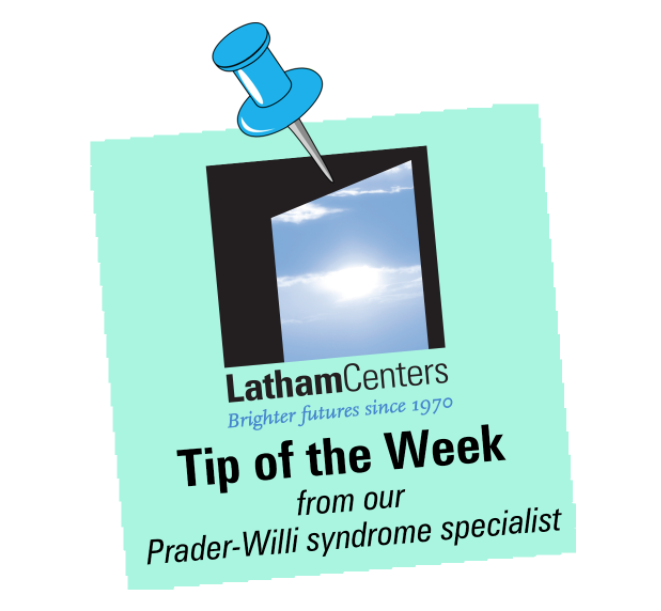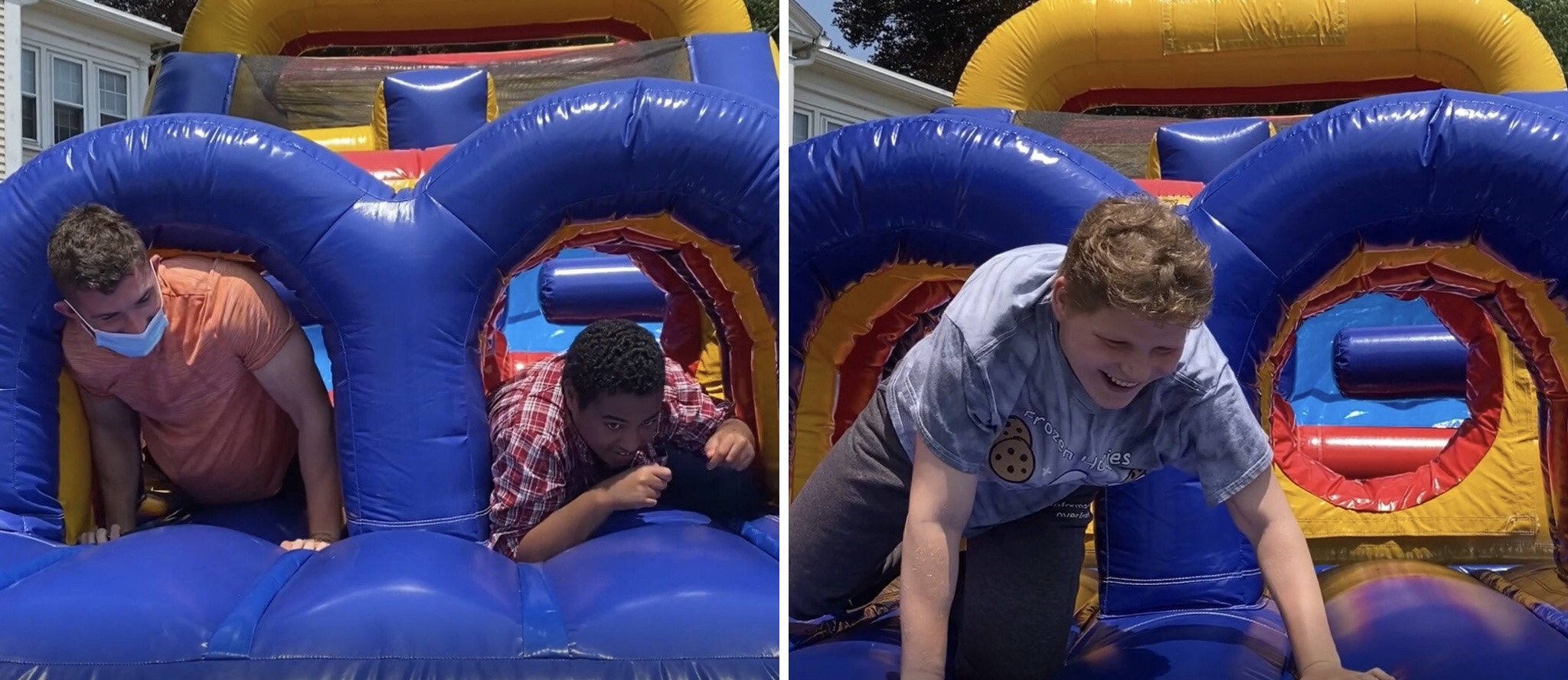Tip of the Week: Vestibular sense
July 23, 2021
 Many people living with Prader-Willi syndrome also live with sensory processing disorder. One of the main challenges is often the vestibular sense. The vestibular sense is your sense of balance, and because infants with PWS have poor muscle tone, they typically do not develop a strong vestibular sense. Babies develop this sense by moving their heads back and forth — the floppy nature of the infant with PWS does not allow for this head movement and therefore, the vestibular sense is underdeveloped. The vestibular sense can be developed over time and should be practiced regularly by the person with PWS. You may notice the person with PWS being unsteady on uneven terrain, not experiencing dizziness when a typical child or adult would, and/or experiencing the feeling of falling or tipping over regularly. You will notice a shuffle in the way they walk, or a resistance to bending over; all of these things point to an underdeveloped vestibular sense.
Many people living with Prader-Willi syndrome also live with sensory processing disorder. One of the main challenges is often the vestibular sense. The vestibular sense is your sense of balance, and because infants with PWS have poor muscle tone, they typically do not develop a strong vestibular sense. Babies develop this sense by moving their heads back and forth — the floppy nature of the infant with PWS does not allow for this head movement and therefore, the vestibular sense is underdeveloped. The vestibular sense can be developed over time and should be practiced regularly by the person with PWS. You may notice the person with PWS being unsteady on uneven terrain, not experiencing dizziness when a typical child or adult would, and/or experiencing the feeling of falling or tipping over regularly. You will notice a shuffle in the way they walk, or a resistance to bending over; all of these things point to an underdeveloped vestibular sense.
Exercises to develop this sense include: balance beams (close to the ground), swings, see-saws, walking in a straight line while looking up in the sky (spot the person while they are doing this), juggling, or anything that forces them to use their sense of balance. Always consult with an occupational therapist before putting any sensory plan in place.
To learn more about one of many fun activities that Latham incorporates into our program to help develop the vestibular sense, stay tuned for next week’s second video and blog about field day!

Patrice Carroll, Latham Centers’ Director of PWS Services, is world-renowned for her Prader-Willi syndrome expertise. She works with Latham students and residents, their families, and other experts, continuously learning and teaching about PWS best practices. If you have PWS-related questions, we invite you to email TipTopics@LathamCenters.org.
